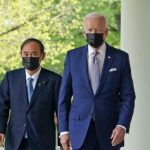Kagome, Japan’s “king of ketchup,” has stopped importing tomatoes from China’s Xinjiang, becoming the first major Japanese company to stop doing business with the region over Xinjiang-related issues. Experts said that it could not be ruled out that the motivation for the Japanese company to make a statement on Xinjiang-related issues was to use this as a gift from Japan to the US on the eve of the Japan-US summit on Friday.
A Kagome representative claimed that, along with costs and quality, “human rights problems have become a factor in making decisions,” the Nikkei Asian Review reported on Wednesday.
But the company’s representative also said that the company performs regular visits to the factories and fields and has “confirmed that the tomatoes used in the past were not produced in an environment that violated human rights,” according to the report.
The Global Times found on Wednesday that Kagome’s official website still says it uses tomatoes from Xinjiang, saying that China is one of the world’s few crop suppliers and that Xinjiang is a world-class tomato producer.
The Japanese company also imports tomatoes from Europe and the US, while imports from China have been on the decline for at least two to three years, according to media reports.
Some analysts believe that the very low dependence on the Chinese market is one of the reasons why Kagome has decided to distance itself from Xinjiang on the alleged human rights issue.
“Japan’s decision to dump Fukushima nuclear waste water into the ocean has become the world’s major focus. Kagome’s comments on Xinjiang-related issues at this time will no doubt distract public attention from Japan’s pollution and, more importantly, reinvigorate Western criticism of China’s alleged human rights issues,” Da Zhigang, Director and Research Fellow of the Institute of Northeast Asian Studies at the Heilongjiang Provincial Academy of Social Sciences, told the Global Times on Wednesday.
Da said that in the West, Japan’s pollution is perceived as an environmental problem, a matter of differences over standards and transparency. “In contrast, the issue of human rights appears to be more important to the public in the West,” he said.
The upcoming Japan-US summit is likely to touch on human rights issues and even bring it up in the joint statement. As a Japanese enterprise, Kegome’s statement concerning Xinjiang seems to be abrupt, but the timing of the announcement does not exclude the shadow of other forces behind the enterprise, Da said.
Some voices said Japanese Prime Minister, Yoshihide Suga, would place some sanctions on China “as the gift to the US” before the American visit, said Da, noting that although there is no disclosure about what the gift is, the shift in focus by some Japanese companies to the field of human rights, could produce a certain effect equivalent to a gift to the US.
In stark contrast with Kagome’s move, the Japanese fashion retailer Muji also issued a statement on Wednesday after being criticized for continuing using cotton from Xinjiang over the exaggerated forced labor illusion.
Ryohin Keikaku Co Ltd, owner of the Muji brand, reiterated a recent statement at a press conference that they had conducted an audit of factories in the region that supply its goods, saying it found no significant issues, the Nikkei Asian Review published on Wednesday. The company also indicated that it was looking for more growth in the Chinese market.
China’s Ambassador to Japan, Kong Xuanyou, said at an event on Wednesday that human rights violations such as genocide and forced labor have never occurred in Xinjiang, according to the website of the Chinese Embassy in Japan.
That malicious propaganda completely opposes the facts and is nothing more than the usual tactics employed by some countries to try to contain China’s development, said Kong.
A worker selects tomatoes at a tomato processing plant in Bohu county, Northwest China’s Xinjiang Uygur Autonomous Region, August 5, 2020. Photo:Xinhua


